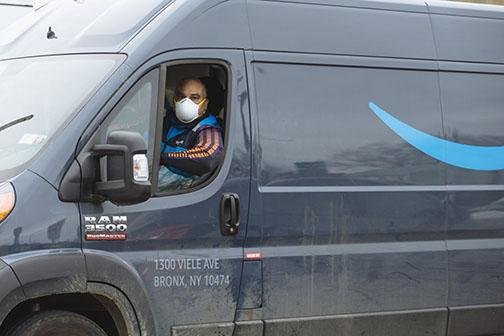NEW YORK -- Amazon, in an attempt to fill its warehouses with toilet paper, hand sanitizer and other items in high demand, said Tuesday that it will limit what suppliers can send to its warehouses for the next three weeks.
Among the items that suppliers and third-party sellers can ship to Amazon include canned beans, diapers, dog food, disinfecting wipes, medical supplies and household goods. Items like jeans, phone cases and other non-essentials will not be allowed.
Suppliers and third-party sellers send their products to Amazon's warehouses to store until a shopper goes online and clicks buy. Amazon then packs up the products and ships it to customers.
The new restrictions are another sign of how much pressure Amazon's delivery network is facing as more people stay home and shop online as the coronavirus spreads in the U.S.
The Seattle-based company warned customers this week that deliveries may take longer than usual and some household goods would be sold out. And on Monday the company said it will add 100,000 new jobs at delivery centers and its warehouses to keep up with a spike in orders.
[CORONAVIRUS: Click here for our complete coverage » arkansasonline.com/coronavirus]
Amazon said the new restrictions will last until April 5. It applies to large vendors as well as third-party sellers, who list items to sell on Amazon.com directly.
It's still unclear what affect it will have on shoppers. For now, they will be able to buy other products like clothing and accessories that are already stored in warehouses and available on its site.
The change only limits products sold through Fulfillment by Amazon, a service through which online merchants pay Amazon to store, pack and ship their products sold on the site. Amazon's marketplace merchants can continue to sell nonessential products, but they have to manage packing and shipping to customers on their own.
"There are going to be sellers who get hit hard, like people who have no way to ship outside of Fulfillment by Amazon," said Will Tjernlund, an e-commerce consultant in Minneapolis who helps 30 brands sell on Amazon. "But it shouldn't be the end of the world for too many people since there appears to be an end in sight."
Information for this article was contributed by Joseph Pisani of The Associated Press and by Matt Day of Bloomberg News.
Business on 03/18/2020
